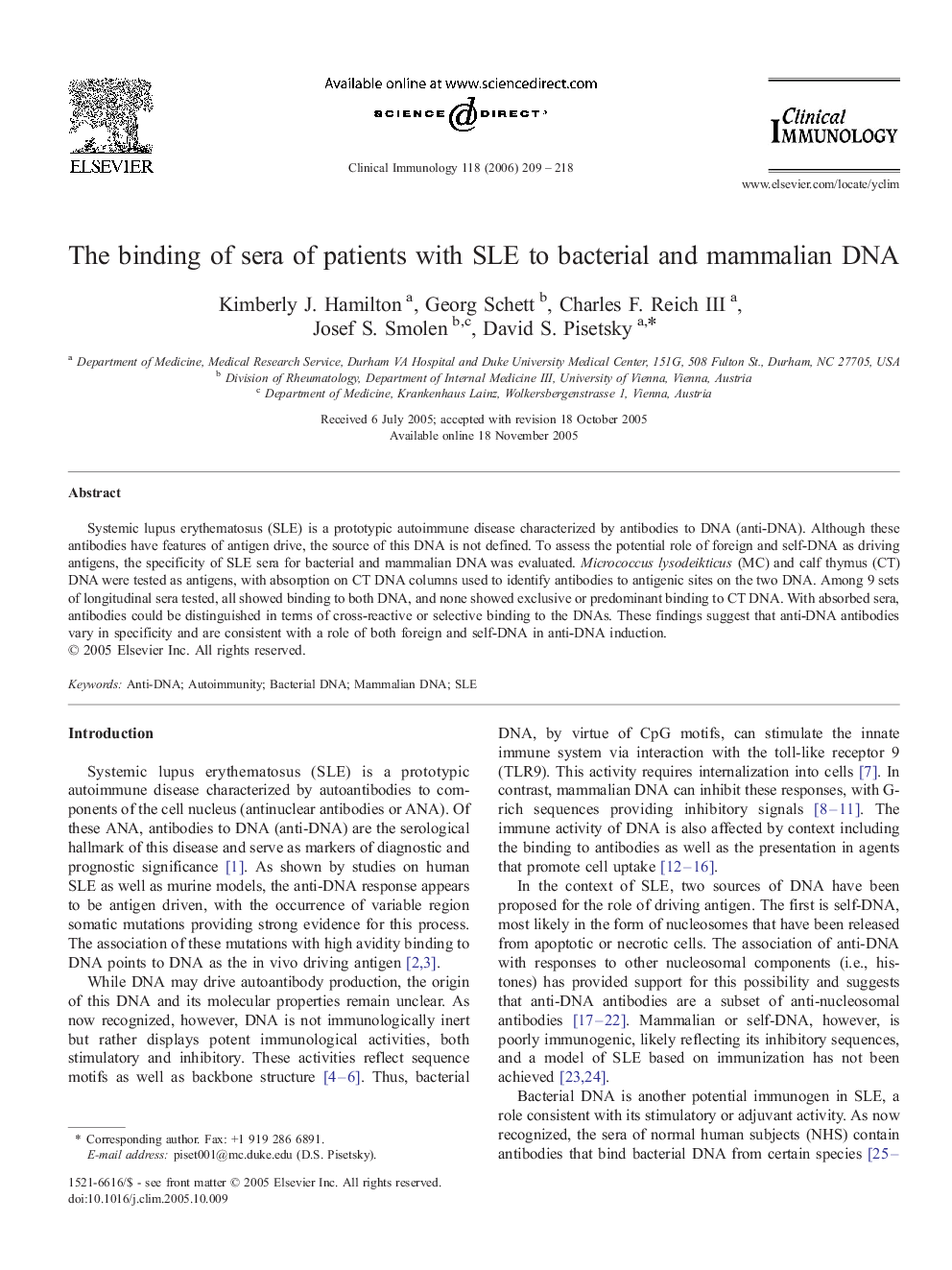| Article ID | Journal | Published Year | Pages | File Type |
|---|---|---|---|---|
| 3258912 | Clinical Immunology | 2006 | 10 Pages |
Systemic lupus erythematosus (SLE) is a prototypic autoimmune disease characterized by antibodies to DNA (anti-DNA). Although these antibodies have features of antigen drive, the source of this DNA is not defined. To assess the potential role of foreign and self-DNA as driving antigens, the specificity of SLE sera for bacterial and mammalian DNA was evaluated. Micrococcus lysodeikticus (MC) and calf thymus (CT) DNA were tested as antigens, with absorption on CT DNA columns used to identify antibodies to antigenic sites on the two DNA. Among 9 sets of longitudinal sera tested, all showed binding to both DNA, and none showed exclusive or predominant binding to CT DNA. With absorbed sera, antibodies could be distinguished in terms of cross-reactive or selective binding to the DNAs. These findings suggest that anti-DNA antibodies vary in specificity and are consistent with a role of both foreign and self-DNA in anti-DNA induction.
